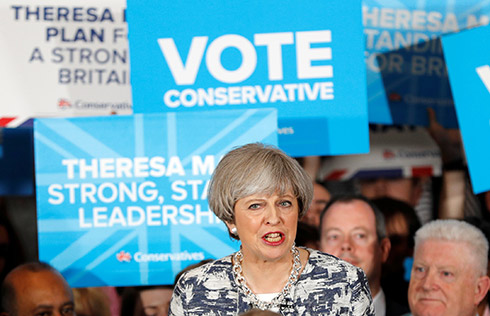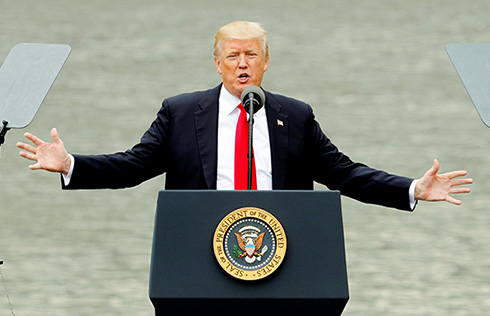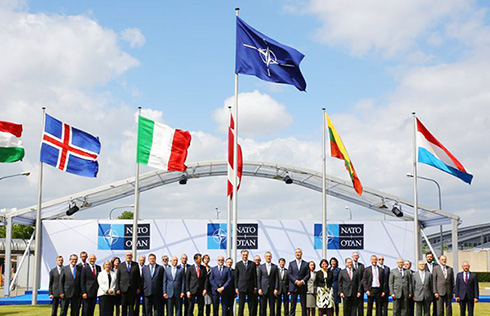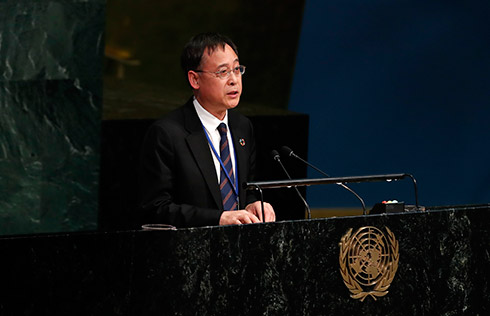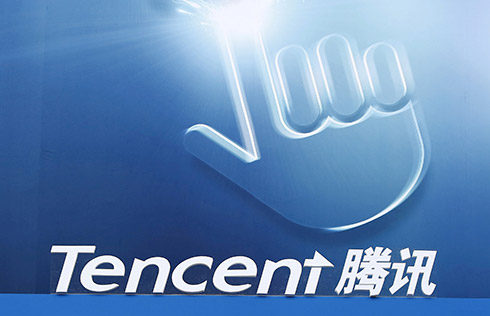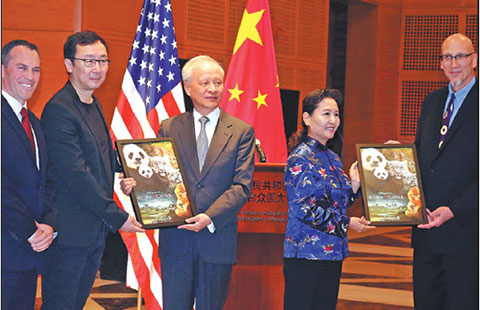Stronger trade, higher investment will boost China-EU relations
 |
|
People attend the "I Love Europe" march which was called to celebrate the 60th anniversary of the Treaty of Rome in Warsaw, Poland, on Saturday.[Photo/Agencies] |
Citing data, some Belgian media outlets have reported that Chinese investors in Belgium have created up to 18,500 jobs for local residents. And on average one Chinese investor has contributed €1 million ($1.08 million) in revenue, reflecting the high productivity and profit-making capability of Chinese investment.
Some Central and Eastern European countries are facing labor shortages partly because of growing Chinese investment in manufacturing and the end of European Union's economic stagnation. In the past five years, Huawei, for example, has created up to 12,000 jobs in the EU.
Last week, Belgium and Hungary became full-time members of the China-led Asian Infrastructure Investment Bank, which means one-third of the bank's 70 members are from Europe. And the development path of the AIIB suggests cooperation among members will deepen to bring Asia, Europe and Africa closer.
But despite the EU marking its 60th anniversary, its leaders are in a somber mood, as European Commission President Jean-claude Juncker put it, because of the United Kingdom beginning the formal process to leave the EU and the uncertainties created by the United States administration under President Donald Trump.
After the EC's recent decision to assess China's investment activities in the EU more strictly, some members of the European Parliament have also proposed that foreign investment in Europe should be closely monitored in "strategic sectors" such as energy, water and telecommunications. Many observers say the move is targeted at China, where EU businesses, according to European politicians, don't have the same access that Chinese enterprises do in Europe. The politicians even claim that EU investment in China is falling.
The fact is, European investors, along with other foreign investors, are now being treated on par with domestic investors in China after having enjoyed preferential treatment for three decades since the beginning of reform and opening-up. And since the EU's accumulated investment in China is already huge, it is natural for it to maintain that level or even fall slightly. As far as expanding business and investment overseas is concerned, Europe is an old hand while China is a newcomer if one goes by the two sides' trading history.
Given the facts, perhaps this is the right time for China and the EU to discuss trade differences and make policy decisions. The understanding in Brussels now is that Beijing is promoting globalization and the world needs to support it. As part of its commitment to globalization, China has been encouraging overseas investment and offering public goods.
However, despite its history of strengthening regional integration, the EU, many suspect, is showing signs of resorting to protectionism ostensibly to protect European enterprises and products. It's another matter, though, that many European businesses and member states don't support it.
Advocating globalization is not the responsibility of China alone. The EU and the US and other global players should promote globalization more intensely than China.
The China-EU partnership is unique, as they work more cohesively during hard times, but not necessarily during normal times. A careful examination of the interactions and exchanges between Beijing and Brussels during the global financial and debt crises will prove the contention.
However true that may be, the priority for the EU now is to take swift, decisive and strategic measures to identify new areas-China's growing investment for example-to help the Brussels-Beijing partnership to overcome the odds.
More importantly, the EU should realize that taking a hard line against Chinese products and investment at this critical time would be a big mistake. The reason is simple: more jobs and better livelihoods will make more Europeans, especially those youths struggling to earn a decent living, have more confidence in the EU as an economic union.
The author is deputy chief of China Daily European Bureau.
fujing@chinadaily.com.cn







